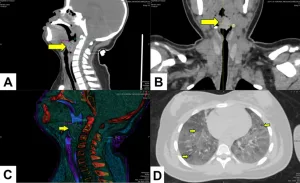Artificial intelligence (AI) is transforming the healthcare industry by providing advanced predictive capabilities for patients with inflammatory diseases. Recent developments show that AI-driven models can assess health risks and identify individuals who may face a higher likelihood of premature death due to chronic inflammation-related conditions.
How AI Predicts Health Risks
AI analyzes vast amounts of medical data, including patient history, biomarkers, and genetic predispositions, to detect patterns associated with severe disease progression. Machine learning algorithms process this information to determine the likelihood of premature mortality, enabling healthcare providers to intervene early with personalized treatment strategies.
The Role of AI in Managing Inflammatory Diseases
Inflammatory diseases such as rheumatoid arthritis, lupus, and inflammatory bowel disease (IBD) can lead to life-threatening complications if left untreated. AI technology assists in:
- Early Detection: Identifying high-risk patients before symptoms worsen.
- Personalized Treatment Plans: Tailoring therapies to individual needs based on AI-driven insights.
- Disease Progression Monitoring: Tracking inflammation levels and predicting flare-ups to optimize care.
Benefits of AI in Healthcare
The integration of AI in medical diagnostics and treatment planning offers numerous advantages, including:
- Improved Accuracy: AI reduces human error by analyzing extensive datasets with precision.
- Faster Diagnosis: AI accelerates the identification of high-risk patients, allowing timely intervention.
- Optimized Resource Allocation: Hospitals can focus on patients with the greatest need, improving overall care efficiency.
Future Prospects and Challenges
While AI presents groundbreaking opportunities, challenges such as data privacy, ethical considerations, and integration into traditional healthcare systems must be addressed. Continuous research and collaboration between medical professionals and AI developers will be essential in refining these technologies for widespread clinical use.
Conclusion
AI is paving the way for more effective disease management by predicting premature deaths in patients with inflammatory conditions. As advancements continue, AI-driven healthcare solutions hold the potential to significantly enhance patient outcomes and revolutionize chronic disease treatment worldwide.




+ There are no comments
Add yours